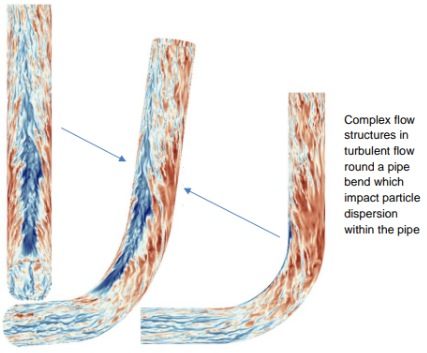Prediction of Non-Spherical Particle Interaction and Agglomeration in Pipe Flows for Nuclear Waste Management Applications
- Academic lead
- Michael Fairweather, School of Chemical and Process Engineering, m.fairweather@leeds.ac.uk
- Industrial lead
- Alex Lockwood, Sellafield Ltd, alex.lockwood@sellafieldsites.com
- Co-supervisor(s)
- Jeff Peakall, School of Earth and Environment, j.peakall@leeds.ac.uk, Tim Hunter, School of Chemical and Process Engineering, t.n.hunter@leeds.ac.uk
- Project themes
- Energy and Transport, Industrial Processes, Underpinning Methods for Fluid Dynamics
The management of multiphase sludge waste is critical to on-going operations within the nuclear industry which aim to transport aggregated waste to interim storage facilities. It is also of relevance to the minerals industry and in general water treatment applications. Numerical predictions of these systems generally use a point sphere-particle approach to represent the solid phase suspended in a liquid flow. However, in practice, the particles possess complex structures such as needles, discs, cubes and more non-trivial morphologies. This has implications for the particles’ trajectorial behaviour and interactions between the phases which in turn impacts their propensity to deposit within a flow causing operational issues. To address this challenge and improve the accuracy of predictive tools, this project will develop, implement, validate and demonstrate a non-spherical Lagrangian particle tracking scheme to predict particle collisions and agglomeration, with fundamental understanding surrounding these interactions generated using an immersed boundaries method to explore the underpinning mechanisms of binary non-spherical particle interactions on the particle-scale. Relevant flow conditions will be predicted using high-accuracy direct numerical simulation. This project will generate understanding and predictive tools of value in improving the operational efficiency of current operations and ensuring safe industrial practice.

